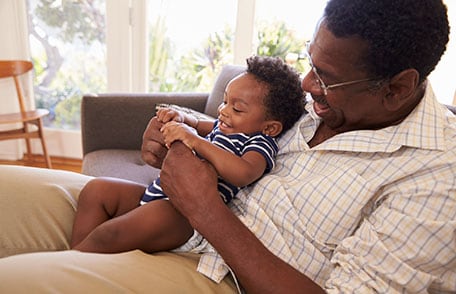Protect Against Respiratory Syncytial Virus

RSV usually causes mild, cold-like symptoms. But it can lead to serious illness, especially for infants and older adults. Wash your hands often to help protect yourself and others from RSV.
Each year in the United States, more than 57, 000 children younger than 5 years old are hospitalized due to RSV infection, and about 14,000 adults older than 65 years die from it.
Respiratory syncytial virus, or RSV, is most common during fall, winter and spring. It can spread through coughing and sneezing. You can also get RSV by touching surfaces that have RSV on them, then touching your eyes, nose, or mouth. Almost all children get RSV by the time they are 2 years old. Healthy children usually experience mild, cold-like symptoms and recover on their own within a week or two. But RSV can cause severe lung infections, including bronchiolitis (infection of small airways in the lungs) and pneumonia (an infection of the lungs).Those who have a higher risk for severe illness caused by RSV include:
- Premature babies
- Children younger than 2 years old with chronic lung disease or certain heart problems
- Adults 65 years and older
- People with weakened immune systems, such as from HIV infection, organ transplants, or specific medical treatments like chemotherapy
Help Prevent the Spread of RSV
You can help protect yourself and others from RSV infection by following a few prevention tips:
- Wash your hands often
Wash your hands often with soap and water for 20 seconds, and help young children do the same. If soap and water are not available, use an alcohol-based hand sanitizer. Washing your hands will help protect you from germs. - Keep your hands off your face
Avoid touching your eyes, nose, and mouth with unwashed hands. Germs spread this way. - Avoid close contact with sick people
Avoid close contact, such as kissing, and sharing cups or eating utensils with people who have cold-like symptoms. - Cover your coughs and sneezes
Cover your mouth and nose with a tissue when coughing or sneezing. Throw the tissue in the trash afterward. - Clean and disinfect surfaces
Clean and disinfect surfaces and objects that people frequently touch, such as toys and doorknobs. When people infected with RSV touch surfaces and objects, they can leave behind germs. Also, when they cough or sneeze, droplets containing germs can land on surfaces and objects. - Stay home when you are sick
If possible, stay home from work, school, and public areas when you are sick. This will help protect others from catching your illness.
If you have cold-like symptoms, you should take extra care to stay away from people who have a higher risk for severe illness caused by RSV. Whether this is possible or not, you should carefully follow the prevention tips above.
Children often pass the virus to one another at their school or childcare center. Limiting the time that high-risk children spend in these settings during the RSV season may help protect them from infection. For more information, see Preventing the Spread of Illness In Child Care or School.
There is no vaccine to prevent RSV infection yet, but scientists are working hard to develop one. And there is a medicine that can help protect some babies. This medicine (called palivizumab) is a series of monthly shots. Doctors usually give the shots once a month during RSV season to infants and young children who have a higher risk for serious illness caused by RSV. If you are concerned about your child's risk for RSV, talk to your pediatrician about these shots.























.png)












No hay comentarios:
Publicar un comentario